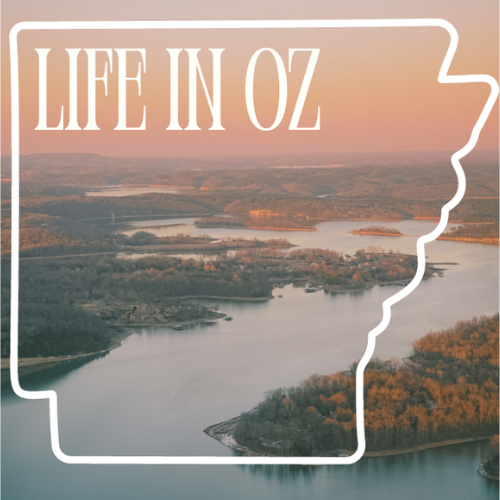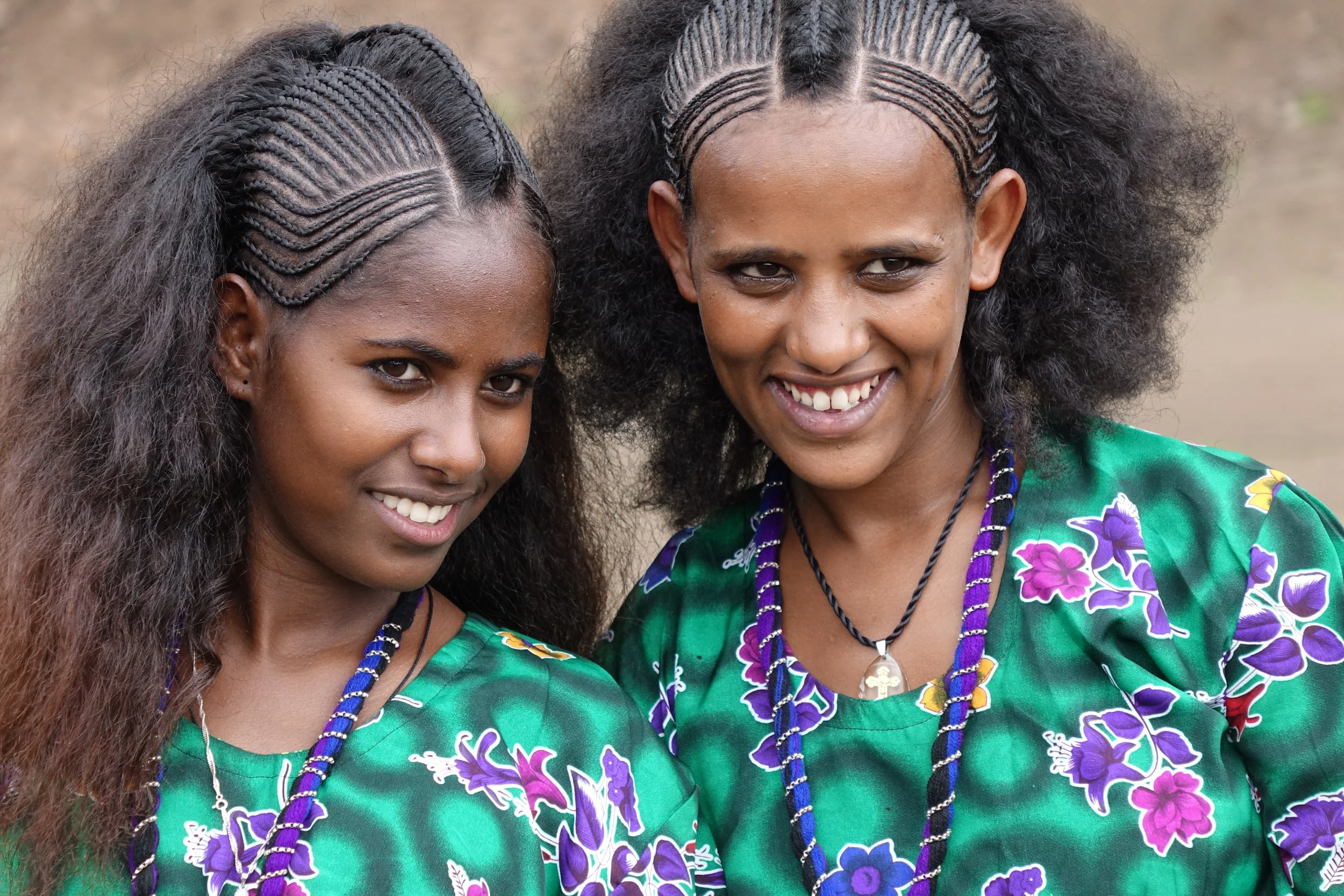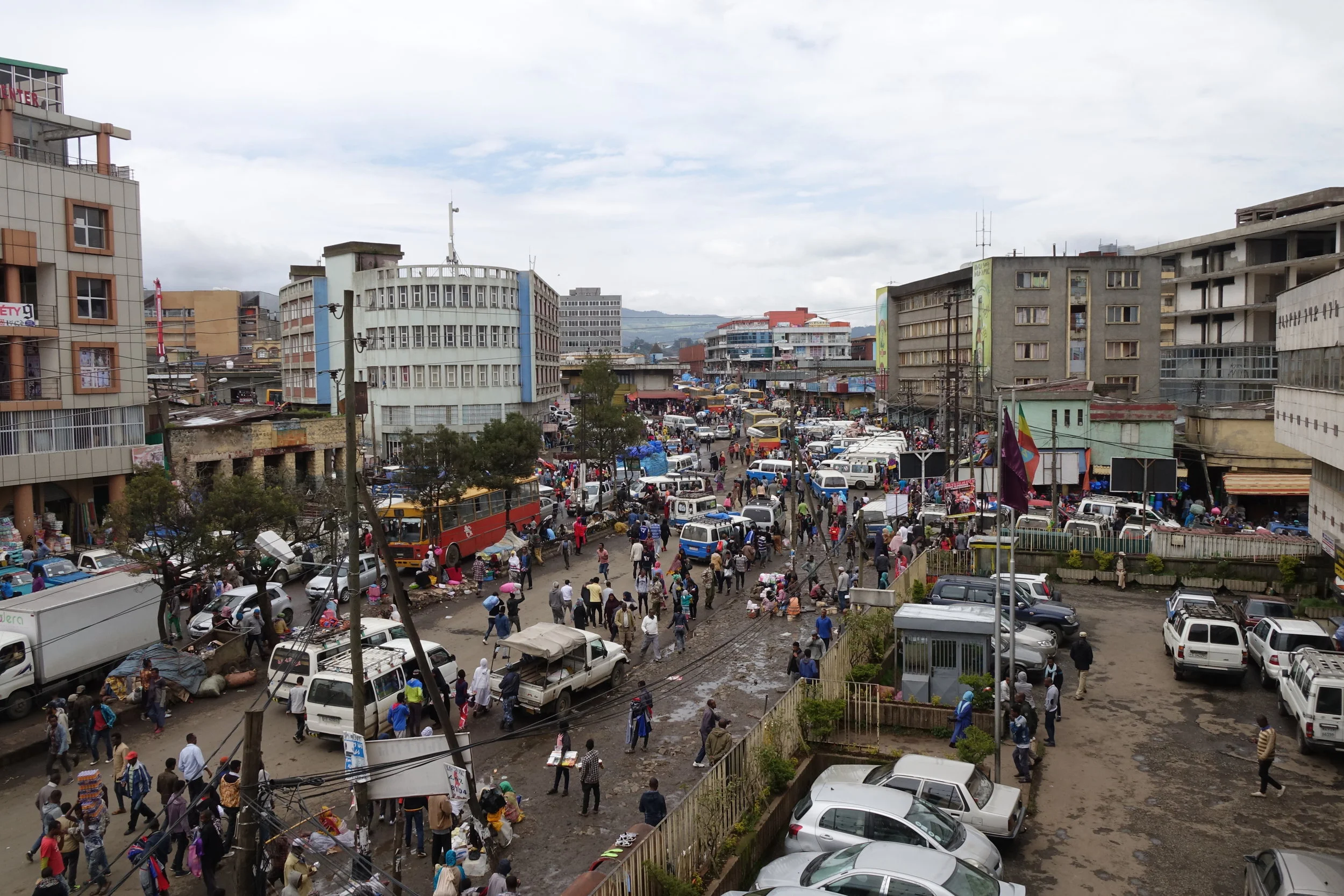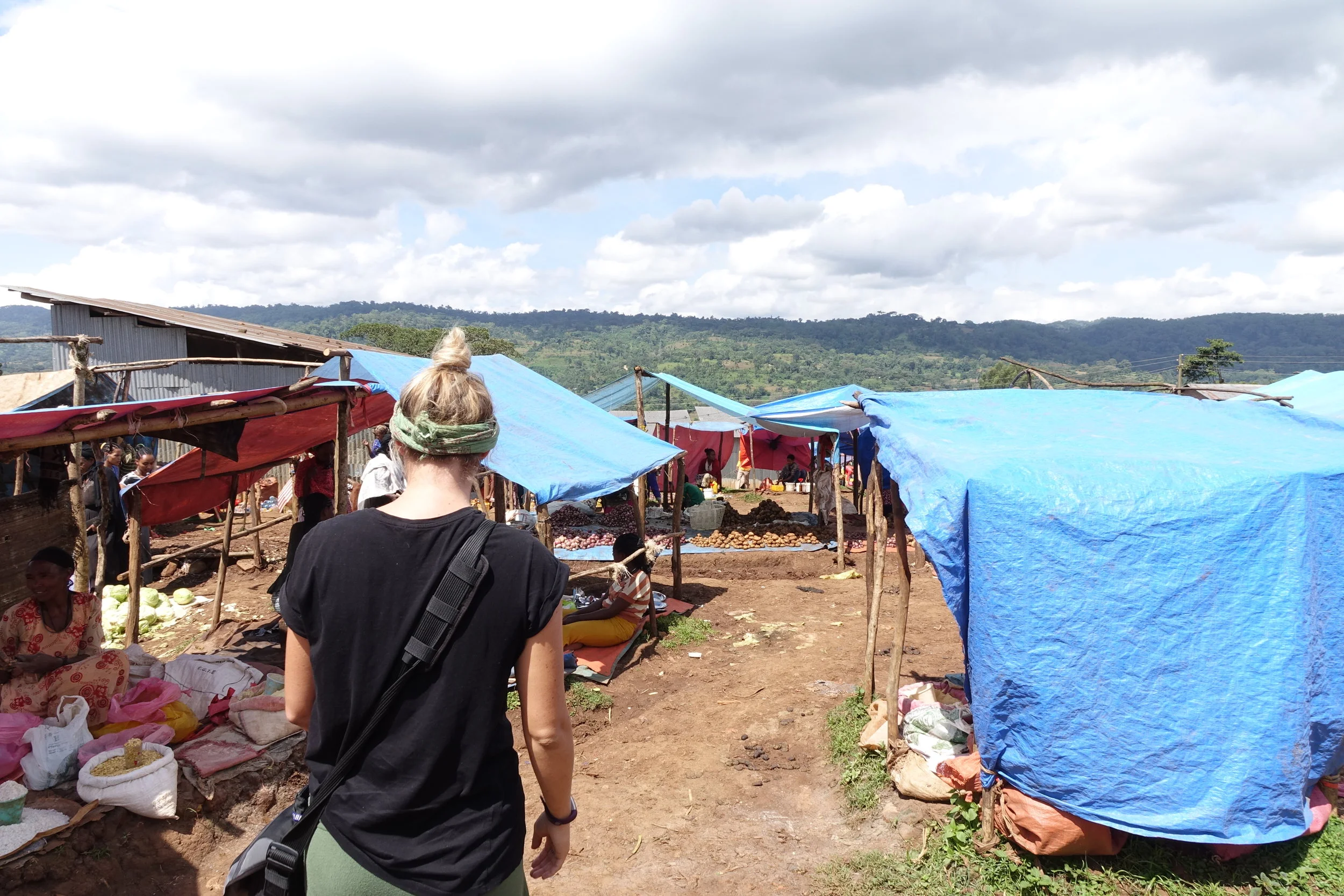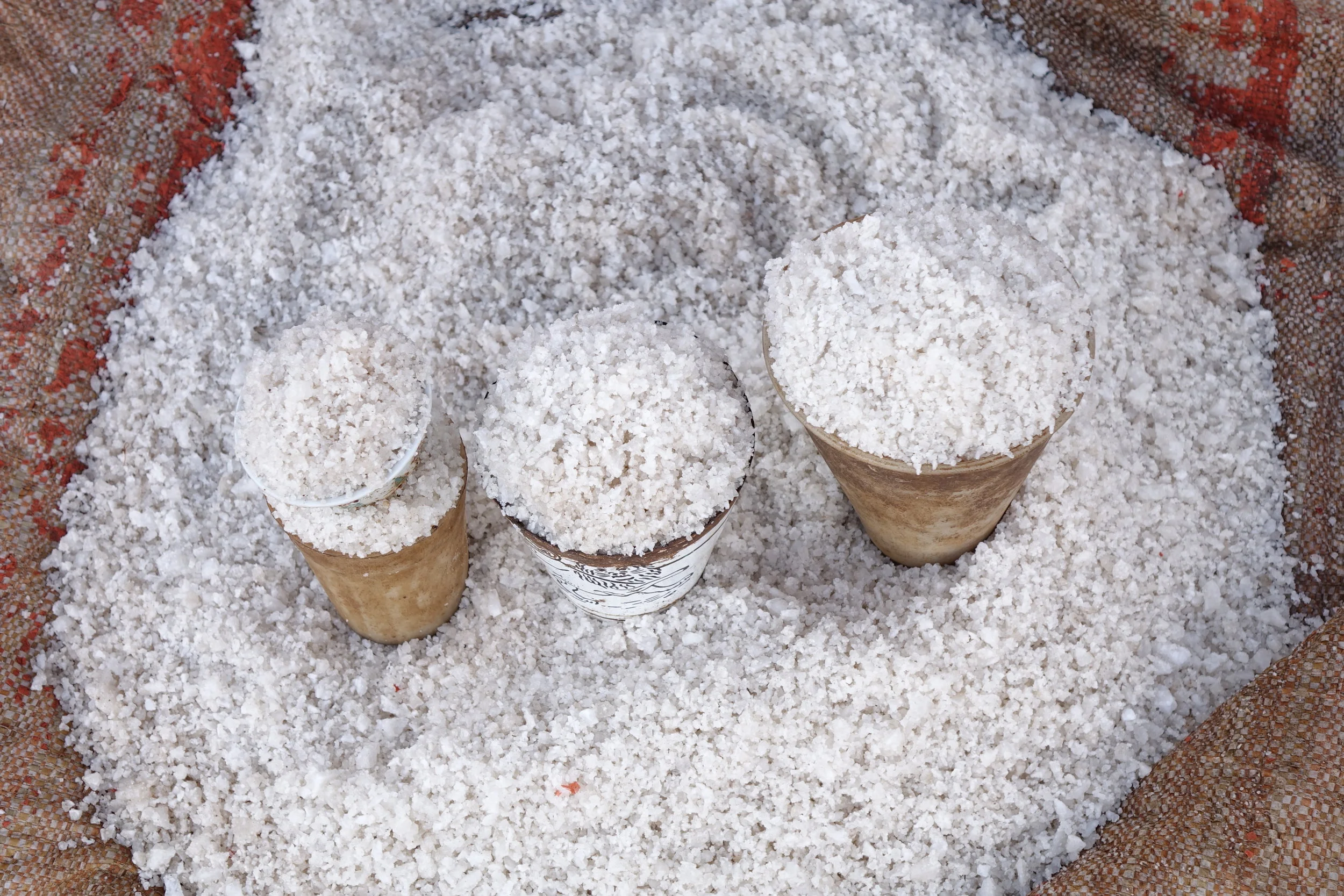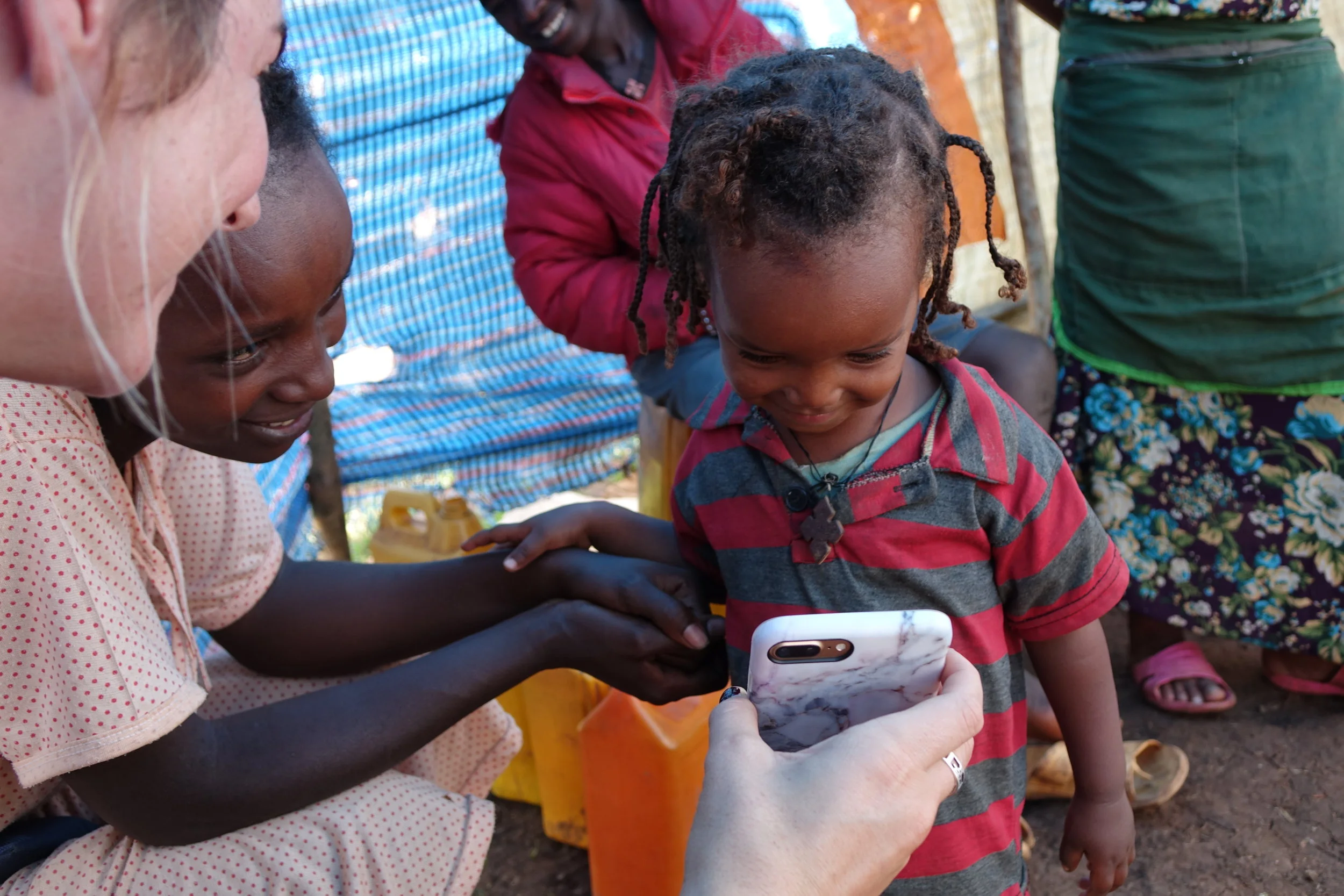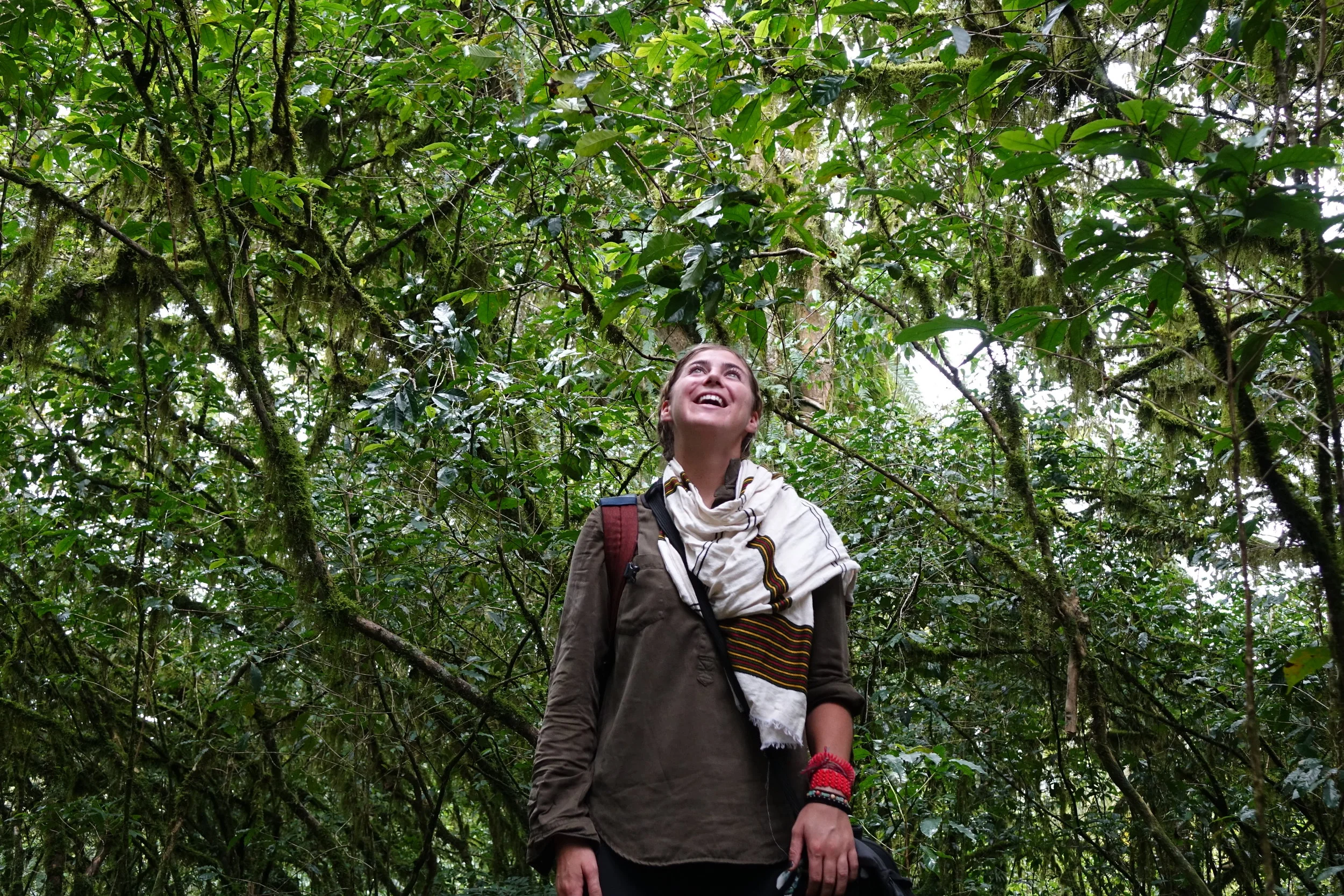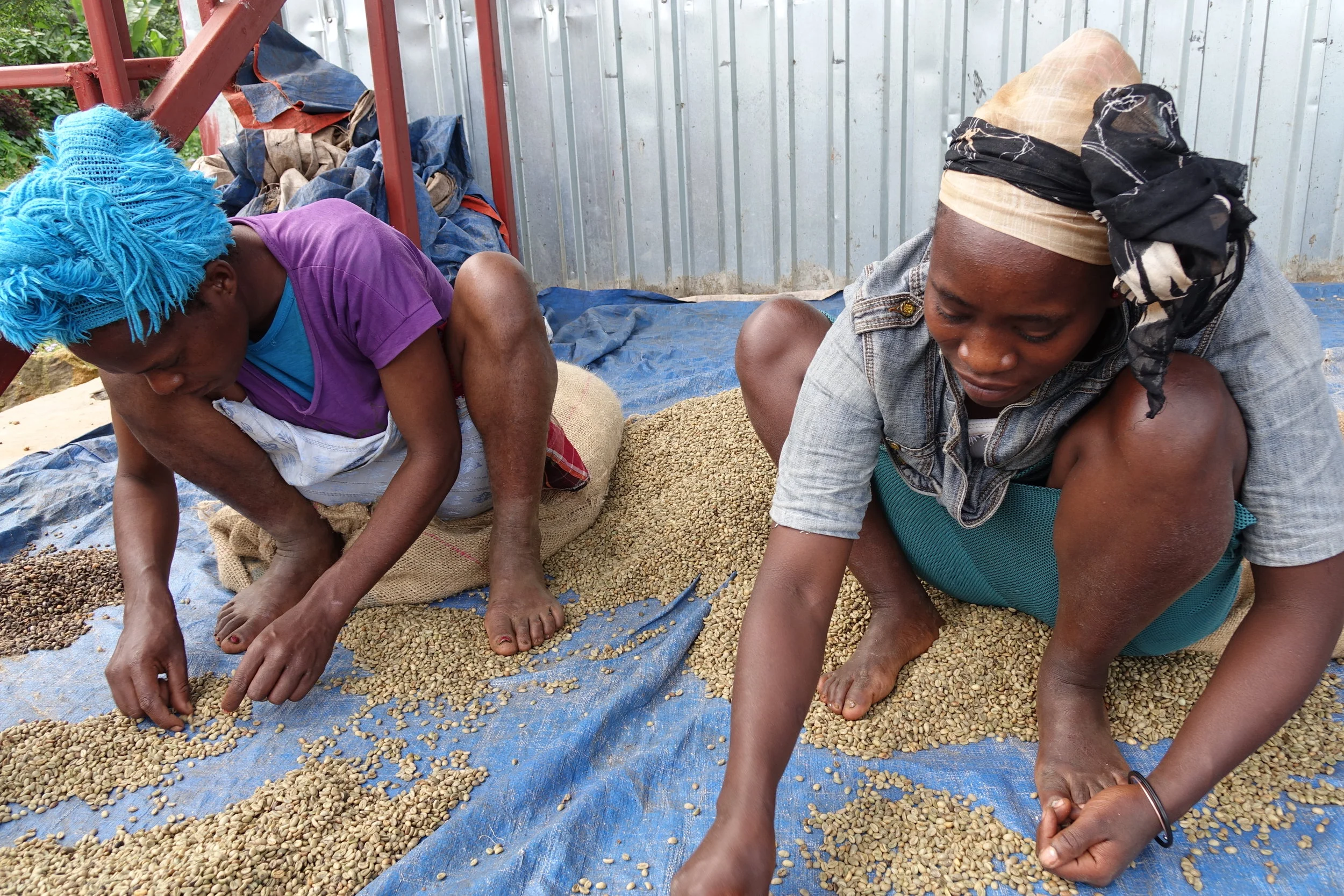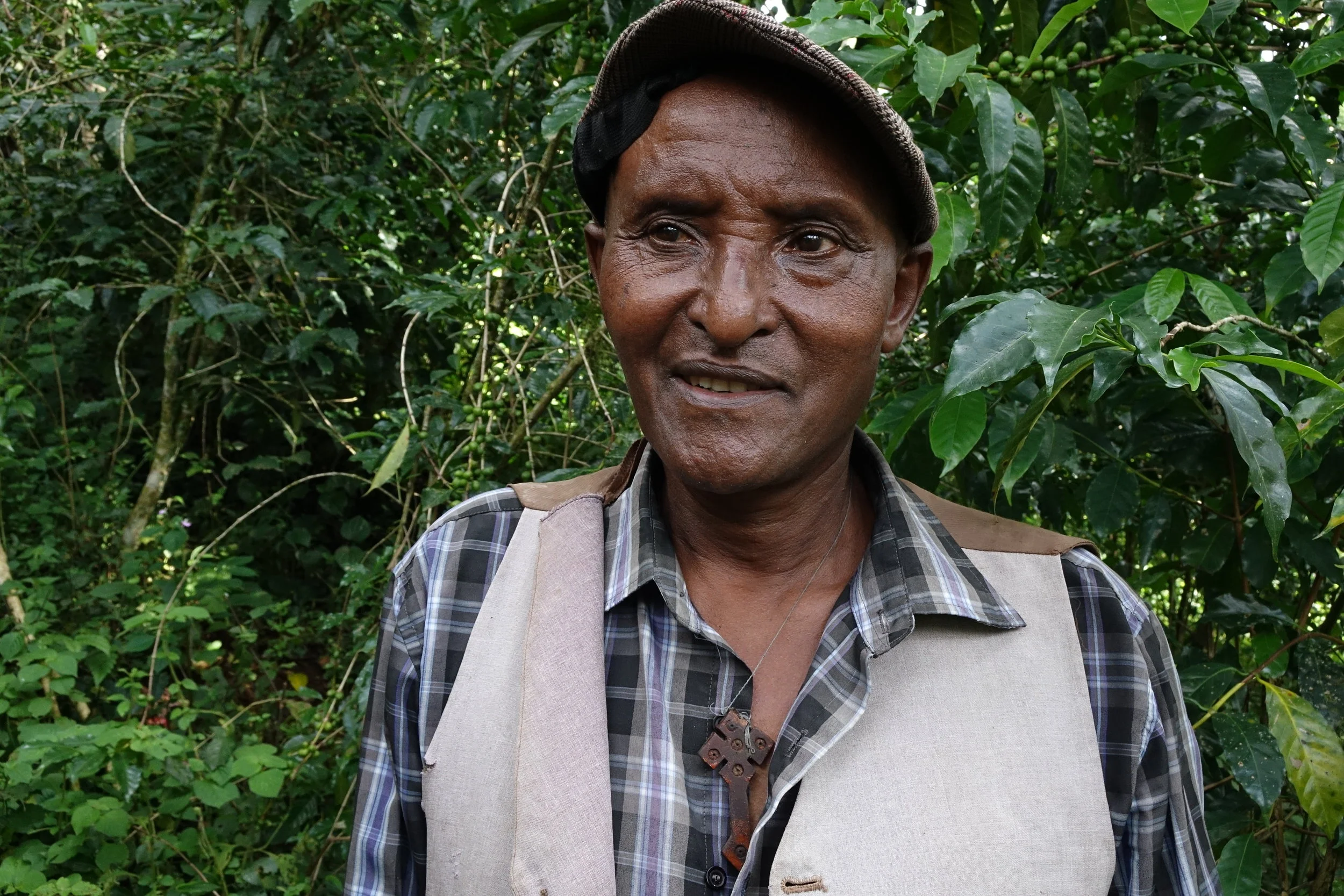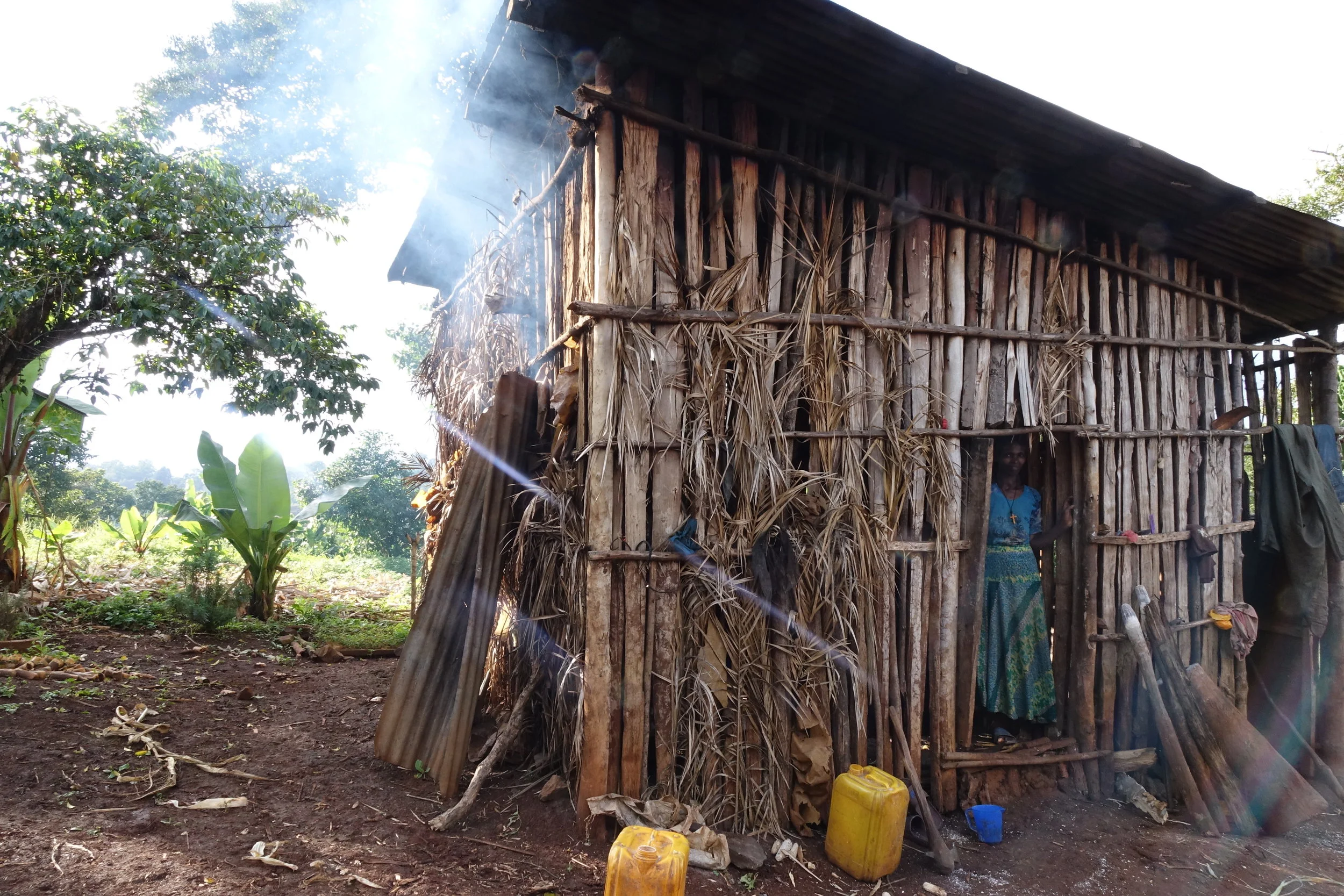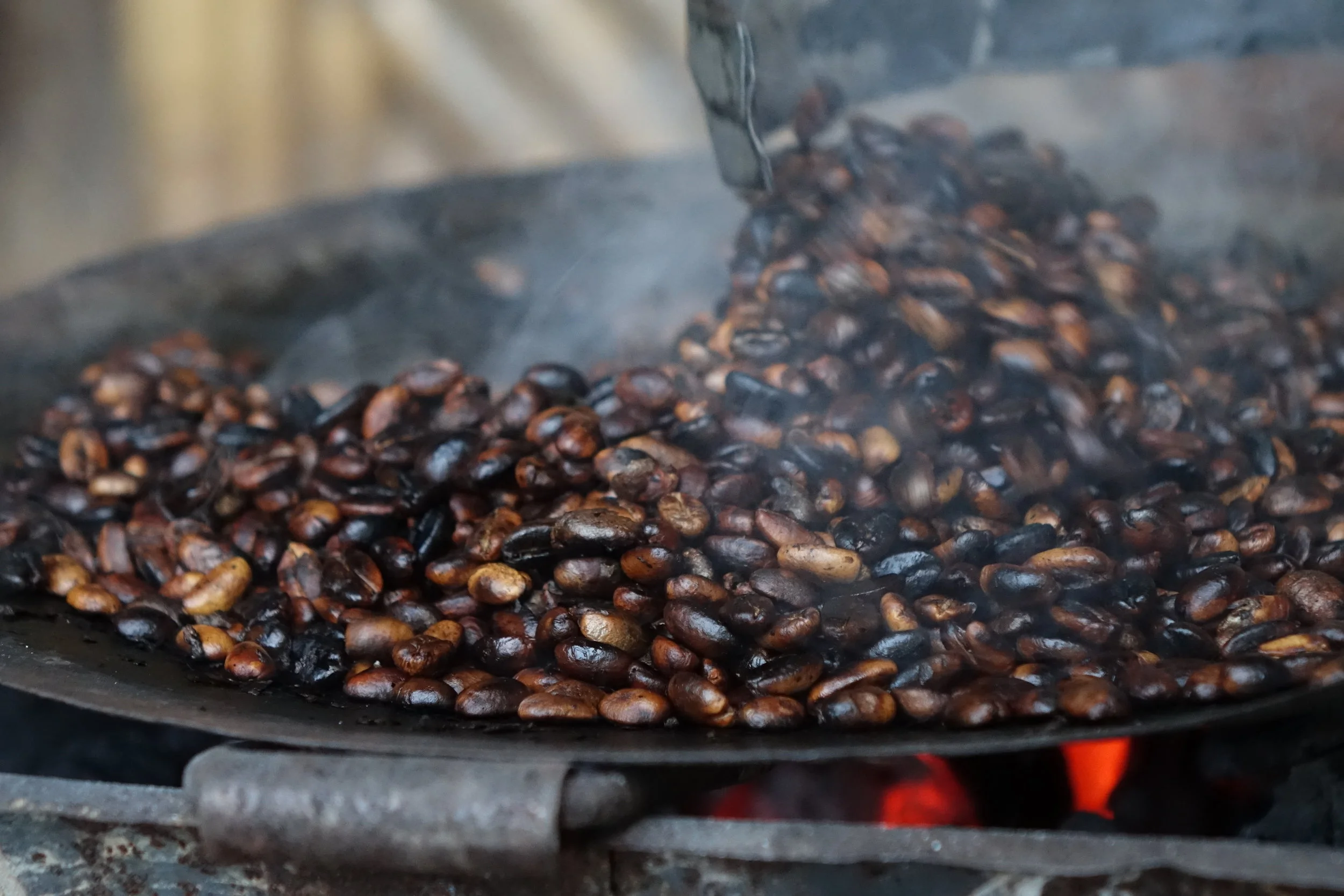Excerpts from Ethiopia
A compiled page of the people, places, and ponderings throughout my two week travel and filming in Ethiopia. A country full of hospitality, organic coffee, laughter, music, and love.
Waking up after a domestic 3 hour flight, 16 hour intercontinental flight, and a mind numbing 2 hour visa situation upon arrival in Addis Ababa, left me with only one thing on my mind. Coffee.
Which coincidentally is what brought me to Ethiopia. A country rich in history, culture, and wild coffee. Truth be told, I had been drawn to Ethiopia since my first crush informed me that he was born there. While I could lie and pretend that at the young age of 10 I never guessed I would travel to Ethiopia one day, the truth is that I always knew life would bring me to the birthplace of coffee (and yes, also the birthplace of my first crush).
Slightly jet lagged and overly eager to venture out for a coffee in Addis Ababa, I opted for the steps instead of the elevator and took the five flights down to the lobby to meet my guide, Muli, from Tadele Travel.
My primary reason for this trip was both for work and pleasure. And since my work as a filmmaker is pleasure itself, I knew that with the right people this would be an experience of a lifetime. Pre-departure and on the ground, Girma, Muli, and the team with Tadele Travel became more like family than anything else. It took a mere half hour before Muli was showing me the kindest cultural gesture, Gersha, of feeding your friend with your right hand while eating a meal. Coming from the United States and Western society, feeding someone is a very intimate act, so I was caught off guard at the beginning, and was probably extremely awkward. However, I began to love the display of friendship through two or three bites of a shared plate of injera and shiro. Especially since I could only manage to roll small bites with my hand, and Muli was a master at mixing all of the flavors of the food with the injera into huge "Ethiopian style" bites. Needless to say, I ate well while I was in Ethiopia.
Coinciding with the festival for the Inception of Mary, known as Ashendiye, that I planned to film and participate in while in Lalibela this time, is a 16 day fast, part of the Ethiopian Church and it's tradition. Since I was set to celebrate the holiday with everyone, I decided to participate in the fasting as well. This means refraining from eating animals or animal byproducts for the 16 days, no eating or drinking (water is okay) till 3 pm, and no alcohol. I must confess that while I abided by the vegan eating for the fast, most days I still had injera breakfasts, and everyday I had coffee. Additionally, I definitely developed a love of shiro; a blend of chickpeas, lentils, onions, and spices with the consistency of hummus but served warm with injera.
Ashendiye
Ashendiye celebration in Lalibela, Ethiopia. A beautiful holiday in the Ethiopian Orthodox Church in honor of the Virgin Mary, where women and girls are empowered & celebrated in the community.
Take a look for yourself to see the celebration in full swing!
Ethiopian Cuisine
Eat like an Ethiopian: -Wash your hands before the meal. -Use your right hand to eat. -Tear off some of the injera (teff staple food) and pick up the flavors you want in your bite while simultaneously rolling the injera into a tight bite. -Feed your friend if you're feeling up to it! -Remember to laugh at yourself, eating should be fun.
Master the Markets
Addis Ababa, Ethiopia
AMHARIC phrases to use:
Hello: Dena Nachihu (a polite and respectful way to say hello)
I am good: Betam Dana
How much is it?: Sint now (SEN-ten-o)
Okay: Eshi (eh-she)
That's nice!: Arif New (ah-riff-no)
Thank you: Ameseginalehu (ah-me-say-GEN-AH-lu)
BONGA, KAFFA TUESDAY MARKET
LALIBELA SATURDAY MARKET
ETHIOPIAN COFFEE.
“Coffee becomes a part of our life, as Ethiopians, from birth. ”
BUNA.
Coffee ceremonies are a part of the culture and tradition in Ethiopia. Incense burns, producing a mystical smoke intertwining with the sunlight, and wrapping you up into a world of your own. The coffee beans roasting make a faint popping sound that echos throughout the room. Quickly the coffee smell mixes with the incense and it's almost as intoxicating as the "buna" itself.
The jebena bubbles, signifying to the woman making the coffee, that the first round is ready to be served. Poured into small off white mugs, the liquid bubbles at the brim, just as a good cup should be. The first cup is always the strongest. I savor every sip of the strong, dark, drink, and am intrigued by the fine grounds left behind at the bottom of the cup.
Everyone else seems unfazed by the intricate designs that the mix of grounds and water has left on the bottom of each cup. We extend our hands out to the woman, as she pours the second round of "buna". This time I notice the decreased strength. It is still an exceptional cup, but it leaves me longing for the first cup once again.
The third, and final round of coffee welcomes a new guest into the gathering. The woman's son is offered the weakest of the coffee drinks, and he accepts enthusiastically. As we drink I ask each person at what age they had their first cup of coffee.
The question puzzles everyone. The woman next to me gently notes, "Coffee becomes a part of our life, as Ethiopians, from birth. It's not unusual for baby's to taste the coffee grounds from their mother's finger as a treat."
I then began to think of all of the years I had missed out on coffee. 14 years to be exact. And finished my cup.
Wild coffee grows in the Kaffa region in it's most natural state.
“I savor every sip of the strong, dark, drink, and am intrigued by the fine grounds left at the bottom of the cup.”
